#Tilzer
Explore tagged Tumblr posts
Text
Bees by Kris Delmhorst from the album Blood Test
#music#kris delmhorst#anders parker#konrad meissner#mark spencer#andy taub#don piper#adam tilzer#alex mccollough#Bandcamp
20 notes
·
View notes
Text
Every single Brawl Stars character as songs
So, I was unhappy with my prior posts on this topic, both because of the song choices I made and because I didn't properly credit the musicians behind them. Ergo, I'm going to compile all of the brawlers into a single list below the cut, and then update and reblog this post each time a new brawler is released.
Feedback regarding song choices is encouraged if you think you have a better fit for a character.
8-Bit: "Pac-Man Fever" by Buckner & Garcia
Amber: "Burnin' Up" by A Flock of Seagulls
Angelo: "There! Right There!" from Legally Blonde: The Musical (written by Nell Benjamin and Laurence O'Keefe)
Ash: "Trash Day" by "Weird" Al Yankovic
Barley: "Bottle Action" by Ms. B'Havin
Bea: "Lord of the Hornets" by Robert Calvert
Belle: "Disciple of Lightning" by DJ the S
Berry: "Skipper Dan" by "Weird Al" Yankovic
Bibi: "Take Me Out to the Ball Game" by Albert von Tilzer and Jack Norworth
Bo: "The Wild West is Where I Want to Be" by Tom Lehrer
Bonnie: "Human Cannonball" by Webb Wilder
Brock: "Rocket Jump Waltz" from Team Fortress 2 (by Valve Studio Orchestra)
Bull: "Another One Bites the Dust" by Queen
Buster: "Rock-And-Roll Nerd" by Tim Minchin
Buzz: "Run This Town" by JAY-Z featuring Rhianna and Kanye West
Byron: "A Little Heart-To-Heart" from Team Fortress 2 (by Valve Studio Orchestra)
Carl: "Diggy Diggy Hole" by The Yogscast
Charlie: "Spider-Man (1967) Theme" by Paul Francis Webster and Bob Harris
Chester: "I Remember Larry" by "Weird Al" Yankovic
Chuck: "Toccata and Fugue in D Minor" by Johann Sebastian Bach
Clancy: "Crab Rave" by Noisestorm
Colette: "Every Breath You Take" by The Police
Colt: "Shoot to Thrill" by AC/DC
Cordelius: "White Rabbit" by Jefferson Airplane
Crow: "Young Dumb and Ugly" by ""Weird Al" Yankovic
Darryl: "He's a Pirate" from Pirates of the Caribbean: Curse of the Black Pearl (Composed by Klaus Badelt)
Doug: "Surf Wax America" by Weezer
Draco: "Through the Fire and Flames" by Dragonforce
Dynamike: "T.N.T." by AC/DC
Edgar: "Smells Like Teen Spirit" by Nirvana
El Primo: "Mexican Wrestler" by Jill Sobule
Emz: "Respectless" from Hazbin Hotel (Composed by Sam Haft, Andrew Underberg, Andrew Alderete, Gooseworx, and Parry Gripp)
Eve: "Mean Green Mother from Outer Space" from Little Shop of Horrors (Composed by Alan Menken)
Fang: "Kung-Fu Fighting" by Carl Douglas
Frank: "Fireflies" by Owl City
Gale: "Much Too Young (To Feel This Damn Old)" by Garth Brooks
Gene: "Arabian Nights" from Aladdin (Performed by Robin Williams)
Gray: "Scheming Weasel" by Kevin MacLeod
Griff: "Big Boss Man" by Jimmy Reed
Grom: "Main Theme" from Bomberman (Composed by Jun Chikuma)
Gus: "Turn the Lights Off" by Tally Hall
Hank: "Send the Marines" by Tom Lehrer
Jacky: "Poundcake" by Van Halen
Janet: "Death from Above" by Turbonegro
Jessie: "More Gun" from Team Fortress 2 (by Valve Studio Orchestra)
Juju: "Friends on the Other Side" from The Princess and the Frog (performed by Keith David)
Kenji: "Title Theme" from Fruit Ninja (Luke Muscat)
Kit: "Nyanyanyanyanyanyanya!"/ "Nyan Cat Theme" by daniwell featuring Hatsune Miku
Larry & Lawrie: "Back to Back" by Pretty Maids
Leon: "Right Behind You" from Team Fortress 2 (by Valve Studio Orchestra)
Lily: "Return of the Giant Hogweed" by Genesis
Lola: "Big Shot" by Billy Joel
Lou: "Sky-High Sundae" from Mario Kart Tour (composer unknown)
Maisie: "What's Up Danger" from Into the Spider-Verse (by Blackway & Black Caviar)
Mandy: "Cookie Land" from Mario Kart: Double Dash!! (Composed by Shinobu Tanaka and Kenta Nagata)
Max: "Caffeine" by Psychostick
Meeple: "Chairman of the Board" by The Stupendium
Meg: "Peach-ball Launches! Robobot Armor" from Kirby: Planet Robobot (Composed by Hirozaku Ando and Jun Ishikawa)
Melodie: "Miku" by Anamanguchi featuring Hatsune Miku
Mico: "Beverly Hills" by Weezer
Moe: "Cripple's Shield Wall" by The Knight in Leslie Fish
Mortis: "Hate the Day" by Behind the Scenes
Mr. P: "Hotel California" by The Eagles
Nani: "Time in a Bottle" by Jim Croce
Nita: "Wild Child" by The Doors
Otis: "Graffiti Crimes" by Mi-Sex
Pam: "You Will Be Okay" from Helluva Boss (Composed by Sam Haft and Andrew Underburg, performed by Bryce Pinkham)
Pearl: "Pass the Biscuits, Mirandy" by Spike Jones
Penny: "You Are a Pirate" from LazyTown (by Stefan Karl Steffanson and composed by Máni Svavarsson)
Piper: "A Spoonful of Sugar" from Mary Poppins (Composed by Richard M. Sherman and Robert B. Sherman)
Poco: "Spooky Scary Skeletons" by Andrew Gold
R-T: "Eye in the Sky" by The Alan Parsons Project
Rico: "Pinball Wizard" by The Who
Rosa: "Garden Song" by David Mallett
Ruffs: "Send the Marines" by Tom Lehrer
Sam: "Super Macho Man" from Punch-Out!! Wii (Composed by Mike Peacock, Darren Radtke, and Chad York)
Sandy: "Enter Sandman" by Metallica
Shade: "Camouflage" by Stan Ridgway
Shelly: "Faster Than a Speeding Bullet" from Team Fortress 2 (By Valve Studio Orchestra)
Spike: "Super Mario Bros. Desert Theme" from Super Mario Maker 2 (Composed by Koji Kondo)
Sprout: "Trees" by Tom Lehrer
Squeak: "Slime Creatures from Outer Space" by "Weird Al" Yankovic
Stu: "Drive Fast (The Stuntman)" by Bruce Springsteen
Surge: "Rules of Nature" from Metal Gear Rising: Revengeance (Composed by Jamie Christopherson)
Tara: "Hot Rails to Hell" by Blue Oyster Cult
Tick: "Drop Da Bomb" by Doctor Steel
Willow: "It's Beginning to Look a Lot Like Fishmen" by H. P. Lovecraft Historical Society
#this took six hours#brawl stars#character analysis#music#feedback is appreciated#feedback is welcome#there isn't enough room to tag all the characters#character breakdown#music analysis
15 notes
·
View notes
Text
youtube
Today's poem: an old, old song lyric -
"Take Me Out to the Ball Game" is a 1908 Tin Pan Alley song by Jack Norworth and Albert Von Tilzer which has become the unofficial anthem of North American baseball, although neither of its authors had attended a game before writing the song. The song's chorus is traditionally sung as part of the seventh-inning stretch of a baseball game. Fans are generally encouraged to sing along, and at some ballparks, the words "home team" are replaced with the team name.
Katie Casey was baseball mad, Had the fever and had it bad. Just to root for the home town crew, Ev'ry sou Katie blew. On a Saturday her young beau Called to see if she'd like to go To see a show, but Miss Kate said "No, I'll tell you what you can do:"
Chorus
Take me out to the ball game, Take me out with the crowd; Buy me some peanuts and Cracker Jack, I don't care if I never get back. Let me root, root, root for the home team, If they don't win, it's a shame. For it's one, two, three strikes, you're out, At the old ball game.
2 notes
·
View notes
Text
Being Bud Cort
Always hold out for something better, that’s today’s lesson. I had four potential performing artists flagged whom I might have written about this morning but I could work up an enthusiasm for none of them — and I had already written about Joe Cook, Joseph Cawthorn, Albert Von Tilzer, Pearl Bailey, Jackie Vernon, Bobby “Wheezer” Hutchins, Warner Baxter, Arthur O’Connell, Phil Foster, Frank Tinney,…

View On WordPress
1 note
·
View note
Text
When was the first song about winning written?
The concept of winning has been an integral part of human experience for centuries, celebrated through various forms of art, literature, and music. Songs about winning resonate with people, capturing the essence of triumph, perseverance, and the joy of success. But when was the first song about winning written, and how has the theme of victory evolved in music over time? In this blog post, we will explore the historical context of winning songs, trace the origins of early anthems celebrating victory, and examine how these songs have shaped modern interpretations of triumph.

The Roots of Victory in Music
To understand when the first song about winning was written, we must look back at the historical significance of music as a form of expression. Music has long been used to mark important events, celebrate achievements, and convey emotions related to victory. Traditional folk songs, hymns, and military marches often contained themes of triumph and success, serving as a way for communities to come together in celebration.
One of the earliest examples of music celebrating victory can be traced back to ancient civilizations. For instance, the ancient Greeks often composed hymns and chants to honor their victors during the Olympic Games. These songs were intended to commemorate the achievements of athletes and celebrate their hard work and determination. While specific titles may not have survived, the tradition of using music to honor winning dates back thousands of years.
The Evolution of Winning Songs
As societies evolved, so did the music that accompanied their victories. The 19th century saw the rise of popular music genres that began to include themes of winning and success. Military marching bands, folk songs, and minstrel shows often featured songs that celebrated victories in battle or personal achievements.
One notable example from the late 19th century is “The Star-Spangled Banner,” written by Francis Scott Key in 1814. While not explicitly a song about winning, it became an anthem for American patriotism and triumph, particularly during and after the War of 1812. Its recognition as the national anthem in 1931 solidified its association with victory and national pride.
The 20th Century: A Flourishing of Winning Songs
The 20th century marked a significant turning point in the evolution of winning songs. With the rise of radio, film, and organized sports, there was a greater demand for anthems that celebrated victory and triumph. This period saw the creation of iconic songs that would come to define the genre of winning songs.
One of the first songs to explicitly celebrate winning in a competitive context is “Take Me Out to the Ball Game,” written in 1908 by Jack Norworth and Albert Von Tilzer. This song became an anthem for baseball fans and is still sung today during the seventh-inning stretch at baseball games. Its playful lyrics about enjoying the game and hoping for a win have made it a classic celebration of sportsmanship.
Another landmark moment came in 1944 with the release of “We Will Rock You” by Queen. Though written later, it built upon the earlier tradition of sporting anthems and became synonymous with sports victories. The song’s powerful rhythm and chant-like structure invite audience participation, creating a communal celebration of winning. Its impact on sports culture cannot be overstated, as it continues to be played at stadiums worldwide.
The Role of Film and Media
The mid-20th century saw the emergence of film and television as powerful mediums that further popularized songs about winning. Many films featured musical numbers that celebrated triumph and success, allowing audiences to connect emotionally with the characters’ victories.
One iconic example is the song “Eye of the Tiger,” written by Survivor for the 1982 film Rocky III. This song became a defining anthem for motivation and perseverance, directly tying into the narrative of the film, which centers around the theme of fighting against the odds. Its catchy hook and driving beat have made it a go-to song for athletes and anyone seeking to channel their inner champion.
Modern Interpretations of Winning Songs
In recent decades, winning songs have continued to evolve, reflecting the changing cultural landscape and societal values. Hip-hop, pop, and electronic music have introduced new anthems that celebrate personal achievements, social justice victories, and empowerment.
Songs like “Lose Yourself” by Eminem and “Fight Song” by Rachel Platten emphasize resilience, self-belief, and the importance of seizing opportunities. These modern anthems focus on individual victories and personal empowerment, encouraging listeners to overcome obstacles and strive for success.
Additionally, social media has played a significant role in the dissemination of winning songs. Platforms like TikTok and Instagram allow new generations to discover and share these anthems, helping them resonate with a wider audience. This evolution highlights the adaptability of songs about winning to reflect contemporary experiences and challenges.
The Significance of Winning Songs
The historical significance of winning songs lies not only in their lyrical content but also in their ability to unite people in celebration. These songs provide a shared experience, allowing individuals to come together in moments of joy, accomplishment, and pride.
Winning songs also serve as a reminder of the human spirit's resilience and determination. They encapsulate the idea that success is achievable through hard work, dedication, and a belief in oneself. This message is as relevant today as it was in ancient times, demonstrating the enduring power of music to inspire and uplift.
Conclusion
In conclusion, the journey of songs about winning can be traced back to ancient civilizations, where music was used to celebrate victories and achievements. The evolution of this genre has seen significant milestones, from early folk songs and military anthems to iconic tracks that resonate in contemporary culture. While pinpointing the exact first winning song may be difficult, the tradition of celebrating success through music is deeply rooted in human history.
As we listen to modern anthems that inspire and uplift, we recognize the importance of winning songs in shaping our emotional experiences. Whether it’s through the lens of sports, personal achievements, or collective victories, these songs continue to serve as a powerful reminder of our capacity to overcome challenges and celebrate success. So, the next time you find yourself in need of motivation or looking to celebrate a victory, turn up the volume on those winning songs and let their power inspire you!
0 notes
Text

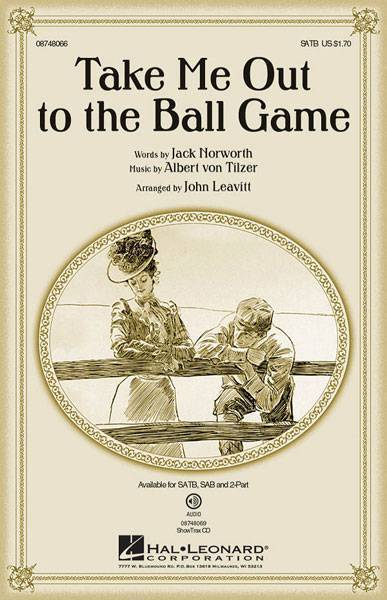
How many of you knew this song was about a female baseball fan? SATURDAY MATINEE MUSIC VIDEO “Take Me Out to The Ballgame” https://www.youtube.com/watch?v=QRq8AWn3oGE …Most everyone knows the chorus to this song, usually led by a loud organ after the 7th inning at baseball games everywhere. However, many people don’t know the verses, which are about an obssessive female baseball fan named Katie Casey. She’d rather go to ballgames than go out on dates with her boyfriend. When I play this song in assisted living homes it never fails to get folks roused up!
More Fun Facts:
1. The song was copyrighted in 1908 and first recorded on cylinder, making it an early example of a (pre-shellac/vinyl) “hit record.” It was also the era when sheet music was the dominant way people played music at home, and sales skyrocketed.
2. It was composed by Tin Pan Alley songwriters Jack Norworth and Albert von Tilzer (later known for “Shine on Harvest Moon”)—both of whom had never been to a baseball game up to that point.
3. My favorite sample is The Marx Brothers 1935 film, A NIGHT AT THE OPERA, when the orchestra is tricked into playing it in the middle of Verdi’s Il Trovatore Overture.
PS: While you’re viewing my video, please subscribe to my Youtube channel—thanks!
youtube
#baseball #KatieCasey #baseballfan #MLB #Americanhistory #KenBurns #MarxBrothers #TinPanAlley #Americana #nationalpastime #singersongwriter #JohnnyJBlair #SingeratLarge #HarvestMoon #Verdi #jacknorworth #albertvontilzer
#johnny j blair#singer songwriter#music#singer at large#san francisco#baseball#Katie Casey#Harvest Moon#Youtube
1 note
·
View note
Text
New Music: Ann Marie Nacchio & Adam Tilzer - Nothing Compares 2 U
Ann Marie Nacchio is a Staten Island, USA-based song writer, pianist and bassist who first came to my attention in March last year through her EP release It’s been a day, a week, a month, a year. Another EP shortly followed and now she’s back with something a little different. Teaming up with Adam Tilzer, the pair have recorded their unique rendition of the Prince classic Nothing Compares 2…

View On WordPress
0 notes
Text
Elijah Mann's "Alone": A Heartfelt Electro-Folk Anthem In the cavernous landscape of Indie-Folk/rock, it takes a certain authenticity and vocal prowess to cast a radiant beacon - cue in Elijah Mann with his single, "Alone". Laden with anthemic tunes that carry the weight of soft rock atop its shoulders, this New York City-based electro-folk singer-songwriter has nestled rhythmically into the pockets of our ears – and hearts. This is his sixth release with producer Adam Tilzer and oh boy, what a harmonious partnership they've cultivated! https://open.spotify.com/album/7w05KAQytuAepjdSt6k7Oo?si=xrx38I5qRjGuRzoBhSp7eQ The interplay between rootsy classical guitar and chaotic electrics gives "Alone" an eccentric spice characteristic of Mann's style. Mitching school were we, Elijah? The narrative woven into the music encapsulates perfectly the coming-of-age angst he experienced during his teen years - an honest chronicle of longing for connection set against tumultuous times. The real star here though? That “smooth male vocal” held aloft by his “great voice”. The emotional skyline is sketched out in wide array with Mann’s vocals weathering through uncertainty only to rise up in anthemic soft-rock fervor. Each verse threatens to bring down tears; each chorus promises resilience. [caption id="attachment_52400" align="alignnone" width="768"] Elijah Mann's "Alone": A Heartfelt Electro-Folk Anthem[/caption] "Alone" shows metronomic precision in its production and execution. Contrary to its title, this single boldly engages us all at once – deftly achieving that tricky balance between personal introspection and universal appeal. Like drinking whiskey on a moody night while torrential rain hits your old wooden porch, you don't need company when you're soaking in Mann’s music. You’re not alone; not really. Mann's growing discography is coming on stronger, braver than before with this release — proof that raw talent forged in the fiery furnace of emotion makes for compelling listening. Perhaps it recaptures our own teenage angst or connects something deeper—either way—you spin it again; you're hooked like dust on an old record. Gosh, I need to clean my turntable. Better yet, I’ll play “Alone” instead. Follow Mann on Website, Facebook, Twitter, YouTube and Instagram.
#Music#Alone#AlonebyElijahMann#AloneElijahMann#AlonefromElijahMann#ElijahMann#ElijahMannAlone#ElijahManndropsAlone#ElijahMannoutwithAlone#ElijahMannreleasesAlone#ElijahMannwithAlone#ElijahMannsAloneAHeartfeltElectroFolkAnthem#newsongAlonebyElijahMann#Spotlight
0 notes
Text
The Story Behind the Most Famous Baseball Song of All Time
If you have ever been to a baseball game, you have probably heard the catchy tune of “Take Me Out to the Ball Game” during the seventh-inning stretch. But do you know the story behind this iconic song that has become the unofficial anthem of America’s national pastime? The song was written in 1908 by Jack Norworth and Albert Von Tilzer, who were both part of the Tin Pan Alley musicians of New…

View On WordPress
0 notes
Text
UPDATE: So while the podcast was brought back, and I can make changes or whatever, some aspects are still blocked by a copyright infringement flag on the show. I'm still not sure what specifically is flagged since they haven't told me, so I can't really make any changes. Even then, though, I know for a fact well at least like 90% sure for one thing, that everything I used in it is copyright free. The bulk of the podcast (what I speak) was written and thought of by myself, the background music is from incompetech which afaik is royalty free, and the song used in the "Forecast" is Alcoholic Blues by Albert Von Tilzer and Edward Laska which is the thing I'm like 90% sure about because I think it's in the public domain, but maybe I was wrong or misled somehow when I looked it up. I don't think I was, though, and I haven't been able to find anything to make me think otherwise since this flag was brought up to me.
So apparently Spreaker removed my podcast for copyright infringement not exactly sure what they think is infringing on a copyright. I think it's probably a song I used in episode 1 called alcoholic blues but afaik that song is in the public domain. So idk I'm talking with them hopefully I can get it cleared up and restored.
1 note
·
View note
Text
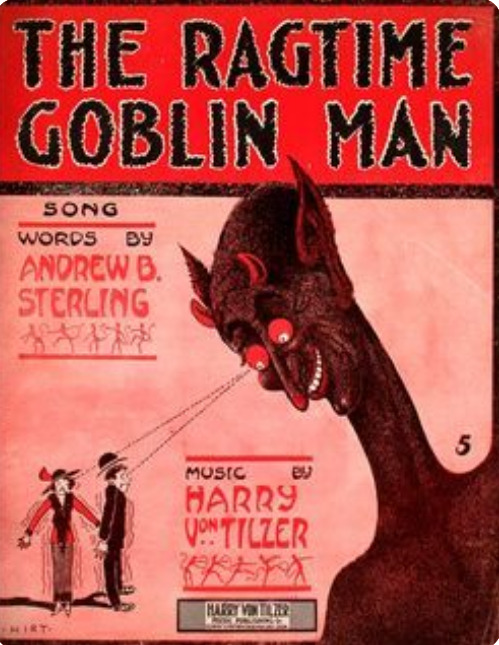
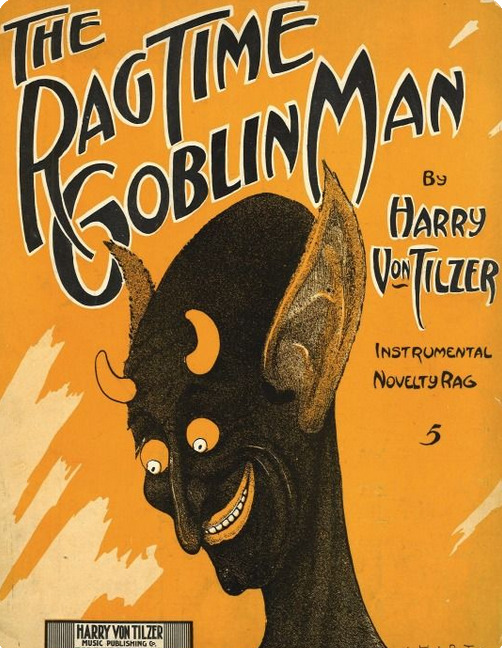
THE RAGTIME GOBLIN MAN (Columbia Records, 1911)
#ragtime#rag time#rag#goblins#harry von tilzer#arthur collins#old timey aesthetic#old time radio#old time music#old timey#music
30 notes
·
View notes
Photo

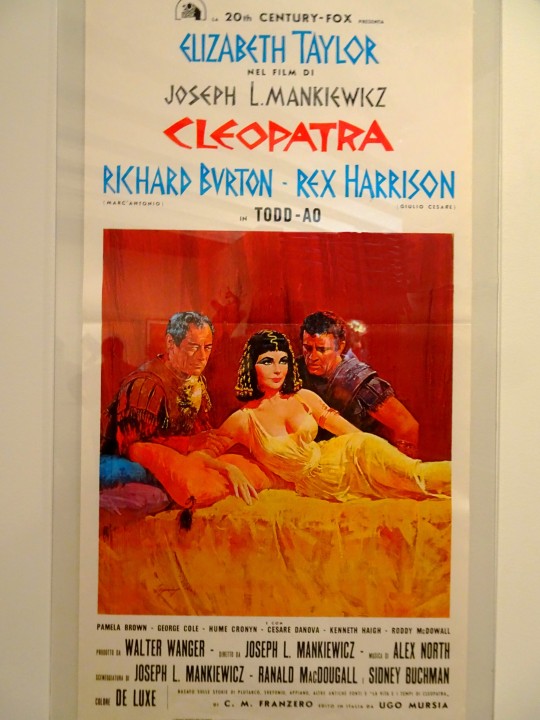
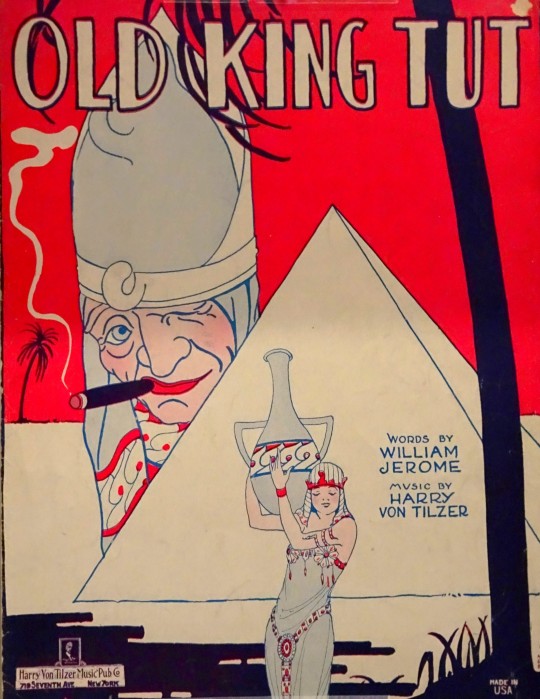
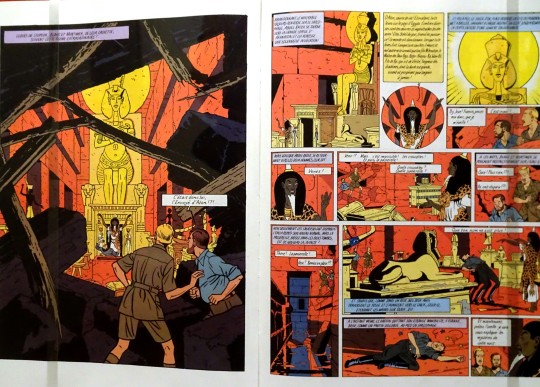
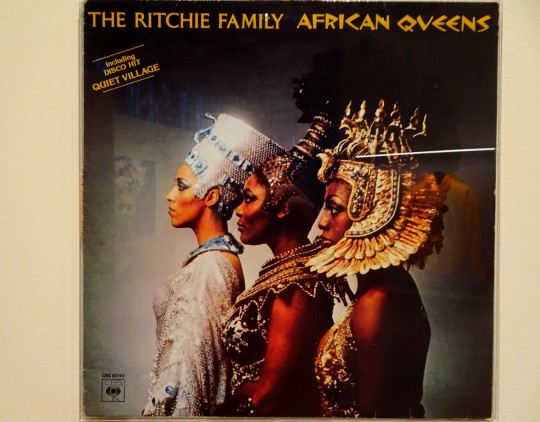

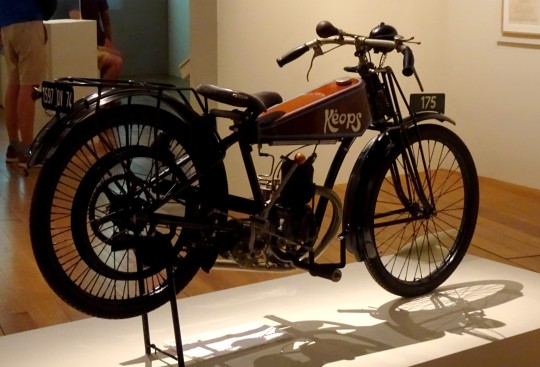


Marseille. Au MuCEM, la très intéressante expo “Pharaons Superstars” !
- Astérix et Cléopâtre
- affiche de “Cleopatra” de Joseph Mankiewicz... ressemblance troublante avec la précédente !!
- AGS Szabo - livret de partitions "Old King Tut" de William Jerome et Harry Von Tilzer - New-York, 1923
- “Blake et Mortimer - le Mystère de la Grande Pyramide”
- The Ritchie Family - “African Queens”, 1977
- cigarettes “Cleopatra" - Egypte, XXe s.
- moto "Kéops" - Oise, 1926
- machine à coudre "Néfertiti" - Egypte, 1960
- chaise avec Toutânkhamon - Le Caire, XXe s.
#Marseille#MuCEM#expo#pharaon#pharaons superstars#astérix#astérix le gaulois#astérix et obélix#astérix et cléopâtre#cléopâtre#cleopatra#joseph mankiewicz#liz taylor#ags szabo#old king tut#william jerome#harry von tilzer#parodie#the ritchie family#african queens#cigarettes#égypte#moto#kéops#machine à coudre#néfertiti#toutânkhamon#chaise
4 notes
·
View notes
Text
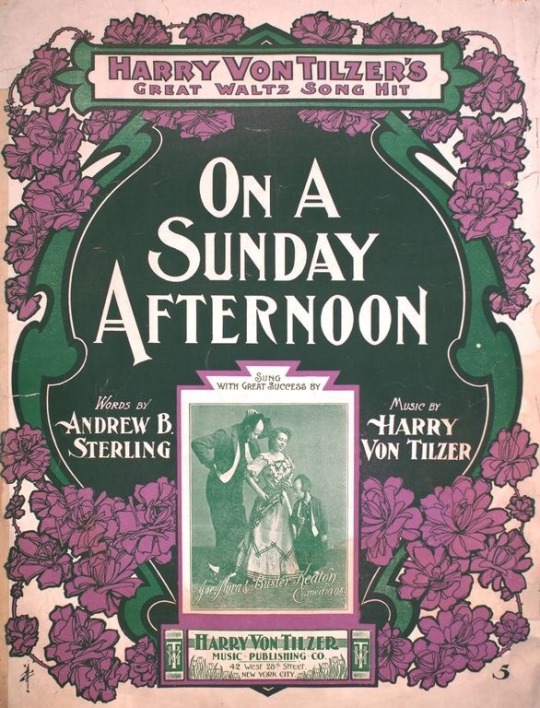
I found a picture of sheet music for On a Sunday Afternoon, and on the cover are the Three Keaton’s! I decided to look the song up, and there are recordings (not of the Keaton’s, unfortunately) of the song from 1902!
youtube
https://youtu.be/cX_TeUB2TSo
#buster keaton#joe keaton#myra keaton#the three keatons#vaudeville#1900s#1902#music#on a sunday afternoon#jw myers#harry von tilzer#Youtube
23 notes
·
View notes
Video
youtube
0 notes
Text
FROLICS at the SEASHORE
1913-1915

Frolics at the Seashore aka Seashore Frolics is a one-act musical comedy performed by The Honey Girls on the Vaudeville circuit in 1915. The songs were composed by Albert Von Tilzer, and generally followed on the bill by various other vaudeville performers. The shows also featured comic duo McBride and Cavanaugh, who also wrote the book.

Albert Von Tilzer (1878–1956) was the younger brother of songwriter Harry Von Tilzer. He wrote the music to many hit songs, including "Take Me Out to the Ball Game" (1908).

The thirty-minute “tab” musical was divided into three scenes:
The Lobby of the Hotel Astorium in Trans-Atlantic City
A Street
The See More Bath House in Trans-Atlantic City

The Hotel Astorium is a fictional lodging in the fictional location of Trans-Atlantic City, although the names were obviously meant to humorously recall New York’s famous Hotel Astor (opened in 1904), and America’s Playground, Atlantic City, on the seashore in New Jersey. Although Atlantic City NJ never boasted a Hotel Astor, 1915 brought new Boardwalk boarding houses such as the Chalfonte and Haddon Halls hotels (above). The Shelburn, Marlborough and Blenheim (among others) already hosted vacationers like the Honey Girls.
The pun ‘See More’ (Seymour) Bath House speaks (literally) for itself!

One newspaper described Frolics as consisting of:
“Pretty girls, novel scenic effects and a riot of laughter and eight of the latest musical numbers.”

“An act that is almost good enough to stand alone as a comic opera.” ~ ANACONDA STANDARD

“No seashore ever had as many pretty girls all at one time as has the act of ‘The Honey Girls.’" ~ HARRISBURG DAILY INDEPENDENT
Scenic effects were also praised:
“You imagine you really see the waves in action when It comes to the bath house finale... The new Von Tilzer tennis song is very fascinatingly presented, the girls racqueting the ball out to the audience.” ~ YONKERS HERALD

The Honey Girls numbered between six and eight, depending on the engagement. Although their individual names were rarely used, newspapers sometimes singled out Honey Girls Betty Duval and Ruth Rogers.

Whether The Honey Girls ever played Frolics at the Seashore in the actual Atlantic City is unknown. They did, however, play Nixon’s Colonial in Philadelphia (a short train ride away), so it is quite possible that they also played Nixon’s Apollo in Atlantic City.

Von Tilzer’s vaudeville Honey Girls should not be confused with a Minstrel Show Group also named the Honey Girls who performed in blackface.
#Atlantic City#The Honey Girls#Seashore Frolics#Frolics at the Seashore#Albert Von Tilzer#McBride & Cavanaugh#Vaudeville#1915
0 notes
Video
youtube
How many of you knew this song was about a female baseball fan? SATURDAY MATINEE MUSIC VIDEO “Take Me Out to The Ballgame” https://www.youtube.com/watch?v=QRq8AWn3oGE …Most everyone knows the chorus to this song, usually led by a loud organ after the 7th inning at baseball games everywhere. However, many people don’t know the verses, which are about an obssessive female baseball fan named Katie Casey. She’d rather go to ballgames than go out on dates with her boyfriend. When I play this song in assisted living homes it never fails to get folks roused up!
More Fun Facts:
1. The song was copyrighted in 1908 and first recorded on cylinder, making it an early example of a (pre-shellac/vinyl) “hit record.” It was also the era when sheet music was the dominant way people played music at home, and sales skyrocketed.
2. It was composed by Tin Pan Alley songwriters Jack Norworth and Albert von Tilzer (later known for “Shine on Harvest Moon”)—both of whom had never been to a baseball game up to that point.
3. My favorite sample is The Marx Brothers 1935 film, A NIGHT AT THE OPERA, when the orchestra is tricked into playing it in the middle of Verdi’s Il Trovatore Overture.
PS: While you’re viewing my video, please subscribe to my Youtube channel—thanks!
https://www.youtube.com/watch?v=QRq8AWn3oGE
#baseball #KatieCasey #baseballfan #MLB #Americanhistory #KenBurns #MarxBrothers #TinPanAlley #Americana #nationalpastime #singersongwriter #JohnnyJBlair #SingeratLarge #HarvestMoon #Verdi #jacknorworth #albertvontilzer
#baseball#Katie Casey#Ken Burns#Marx Brothers#Tin Pan Alley#Americana#singer songwrite#Singer at Large#Johnny J Blair#Harvest Moon
0 notes